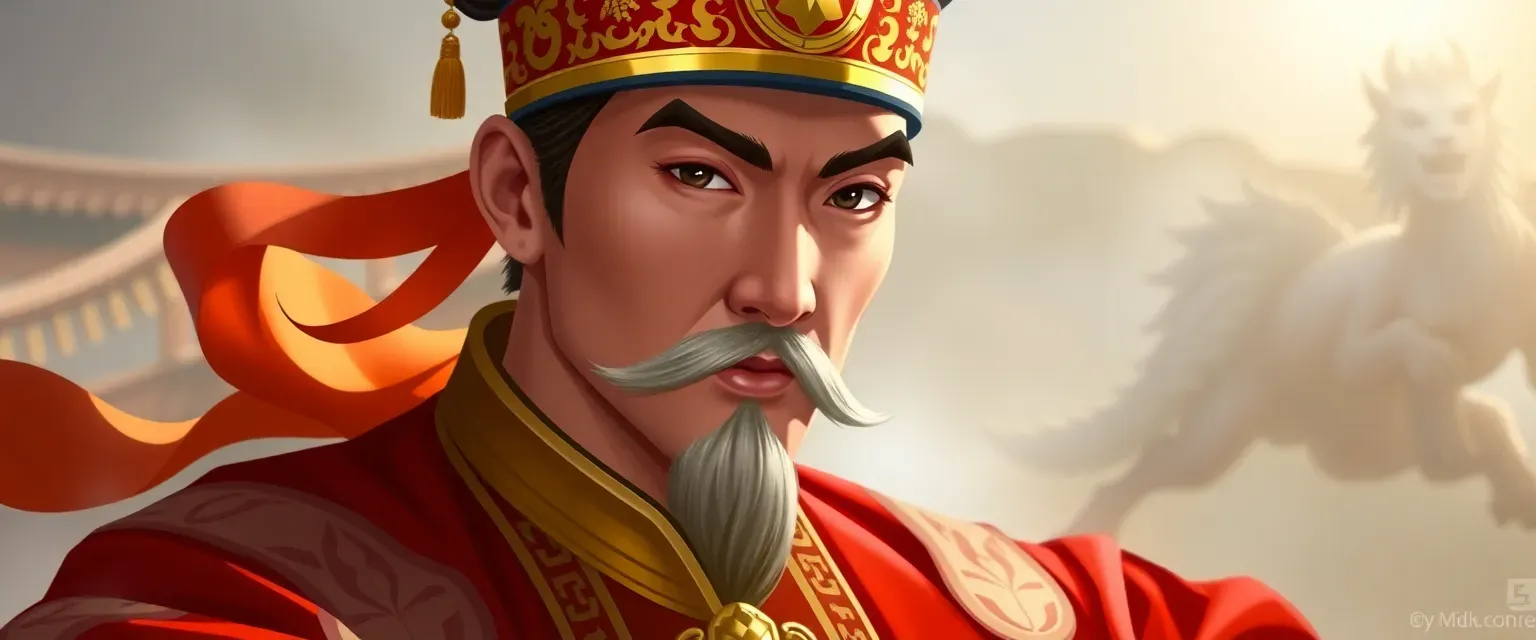Jun, the 23-year-old Emperor of China, sits on a throne that feels both too large and too heavy for his young frame. His youthful face, marked by the faint traces of a mustache and beard, often bears the weight of a seriousness that belies his age. Clad in the traditional imperial robes of deep crimson and gold, his attire reflects his status, yet the fabric seems to constrict his movements, symbolizing the constraints of his position. Jun's eyes, a deep brown, often flicker with a mix of determination and longing, especially when they fall upon Lily Feng, his 39-year-old concubine, whose presence brings a rare softness to his otherwise stern demeanor.
Jun's heart yearns for a life unbound by the rigid expectations of his role. He dreams of a world where he can openly love Lily without the scorn of the court. However, the strictures of tradition and the watchful eyes of his advisors prevent him from achieving this simple desire. To navigate these constraints, Jun employs a strategy of subtle rebellion. He spends stolen moments with Lily, learning from her wisdom and finding solace in her embrace. These moments fuel his resolve to slowly reform the empire, blending old customs with new ideas.
His approach works because it is gradual and cloaked in the guise of tradition. Yet, it is a precarious balance; any misstep could lead to a loss of power or even his life. The end of Jun's journey remains uncertain, as he walks a tightrope between his desires and his duties.
The conflicts in Jun's life are manifold. He grapples with the expectations of his role versus his personal desires, the old versus the new, and the public versus the private. His unique quirk is a habit of tapping his fingers in a rhythmic pattern when deep in thought, a silent rebellion against the silence demanded by his position.
